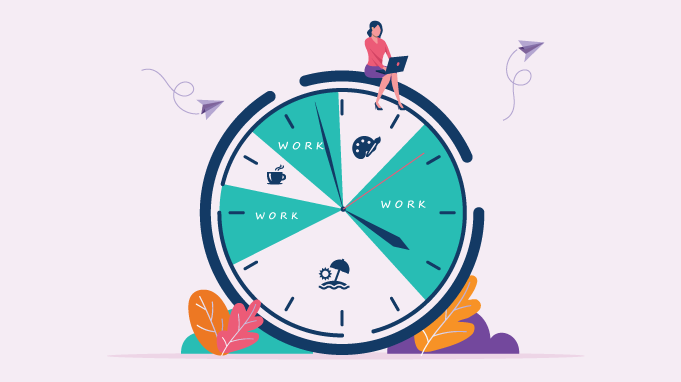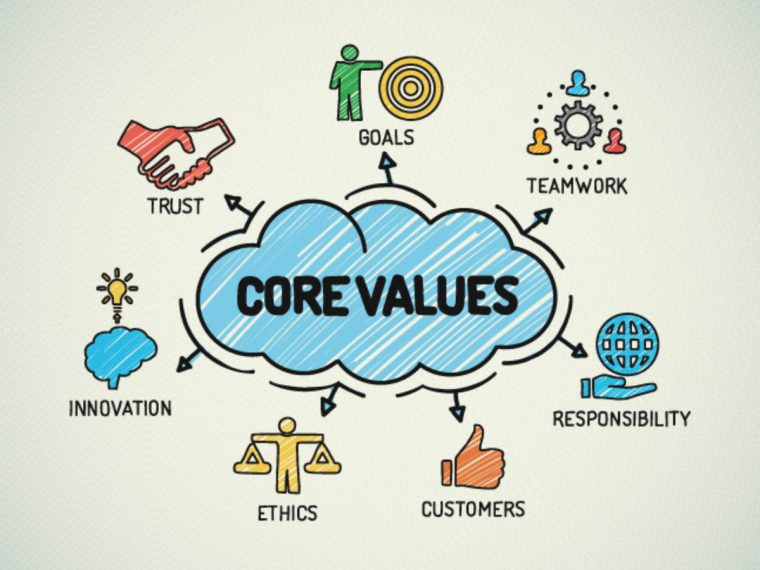
If there’s one thing I learned about looking for a job is that you can never be too gelojoh. Sometimes, the job description fits what you want perfectly, but when you go for the interview, the atmosphere is just… different. Your values don’t align, they won’t pay for your EPF, or maybe the office is too far away.
After going on so many interviews throughout my adult life, it’s safe to say that I’ve become a sort of veteran on what to look for in a job. I’m still learning as I go, of course, because when it comes to jobs and interviews, you learn something new every time.
So, if you’re someone who’s looking for a job, here are a few things to look into and think about while you’re on the search.
1. Working Hours Should Have A Limit. Please.

Malaysians have a maximum of eight hours of work per day and at least six working days. That’s 48 hours. For the most part of it, a lot of companies only work on weekdays. But there are some that require you to work on weekends as well, like a teaching job or if you work as a salesperson. I feel like working hours is one of the key parts of people deciding on whether they want to take a job or not. At least, for me, it is.
I once mistakenly thought that a job’s working hours were from 6am to 2pm when in actuality it was from 6pm to 2am. This just goes to show that you should always read everything twice or thrice before you sign anything.
Needless to say, that career path did not last long. That’s why it’s very important for you to check with your potential employer on what your working hours will be like before you make a final decision.
If your potential employer asks you to work for longer than eight hours, it is within your right to ask for overtime or more pay depending on how much your agreed salary is, since you’ll be working for longer than normal. But also, ultimately, if you don’t mind, you can just agree with their terms. In the end, it’s all about you and what you’re comfortable with.
2. Company Values And Your Values Should Be Twins… Or At Least Sisters

There’s a lot to be said about how a company views itself. Of course, they’re going to talk themselves up during the interview or on their website about how they’re the sun and stars, but it’s your duty to ask the right questions to figure out if their values align with yours as well. If your views line up with the company, chances are, you’re going to fit in very well with them.
It would certainly make your experience with the company a lot more mutually beneficial and you’ll grow along with them instead of remaining stagnant for most of your career. But hey, some people also prefer the easy breezy smooth flow of their work and never want change. That’s alright too. Just as long as you know what you want.
Companies would also sometimes refer to themselves as “family” and that sits as a red flag for a lot of people because it just makes them think that they’ll just be made to do more work without the added bonuses and such since, you know, “family helps each other, don’t they?”
So, be careful to tread lightly on that subject and ask them what they mean when they tell you that they’re “like a family”.
3. Benefits Or Salary. Why Not Both?

Although this is the third on the list, I’d like you to know that it should be the first. I just didn’t want it to seem like money is everything when you’re looking for a job. Something you should look for is also the experience and growth you can have in a company. But… it’s certainly the top three, I’d say.
There had been multiple occasions where companies tried to lowball me. They’ll tell me I’m either “too new” and “inexperienced” to be asking for pay like that, or they just give me the “we’ll be in touch” and never call. But from my experience, the right company will accept your salary offer. Or they would at least negotiate it to the amount that both of you would be satisfied with.
You can agree to the amount they offer or ask to add a few more ringgits in the future. If you’re a new job seeker, it’s important to keep that minimum wage (now RM1,500) in mind. Don’t go lower than that amount unless they offer you any added benefits.
When I say benefits, they are inclusive of leave days, bonuses, allowances, EPF, insurance, etc. You know, the works. Make sure to ask your future employer if they provide any of these benefits for you before you sign that contract. You don’t want to be regretting anything a few months in.
4. Job Scopes And The Hidden Workloads That Follow

A job description is simply a detailed explanation of what your job would entail if you decide to work at the company. For me, I think it’s a really important part of the job search process. It tells you what your future employer expects from you. It also gives you an idea of what skills you need to have in order to be working for the company. You can also ask if the company provides any training classes for you to further hone your skills for the future.
It’s also important to take note that some workloads aren’t mentioned until after you’ve signed the contract. Which is why it’s very, very important to have everything in writing! Don’t just let them make empty promises to you and not have any proof of the matter.
Because when you finally get to work there and have an excessive workload, they’ll tell you that you’ve already agreed to the terms so it couldn’t have been their fault. Yes, I’m speaking from experience and it gets frustrating because, on one hand, they’re right. But on the other hand, you were totally bamboozled.
Are they going to make you do more than your job description? That’s why you should ask. If they’re vague about it, put it on paper. Anything spoken is basically mythical garbage.
5. Send Location, But Preferably Somewhere Close
This might not be that important to some people, I understand that. I’ve seen a lot of people travel from Singapore to Johor for their jobs and spend hours and hours in traffic just to do it again the next day. But to others, it’s very much important. “Others” being me.
The time and energy it takes to go to work and come home is more important than anything else a job has to offer. Okay, I’m lying, the salary and the benefits are extremely important, but the location is definitely in there as well.
Would you like to spend hours stuck in traffic and reach home in the wee hours of the night? Then, you’d have to wake up early just to avoid the oncoming traffic in the morning.
I’m just saying, the location of the company is something you should keep in mind. You might think that it’s fine that it’s far but you’re just thinking about it at the moment. Trust me on this, sleep on it. Look for potential public transport near your house area that reaches your future office and also measure how long it takes you to get there on a good day and during peak hours.
It helps a lot to know the time estimation because if you feel like it’s too far away from you, there are other job positions that are close by. You just have to keep looking.
6. Work-life Balance? What’s That?

To me, work-life balance is the most important. Yeah, okay. I’ve said that like three times now. But I honestly mean it for this one. It’s necessary for you to set boundaries with your work life to ensure that you’ll know when you need to “let go” of your work mind during the weekends or on holidays.
I would like to know with clarity that my weekends or my off-time will not be interrupted at all unless it’s a complete necessity. Even then, it could probably wait. Would I want to be thinking of work when I’m on a flight to Barbados? I don’t think so. So setting a clear line between work and play should be established from the beginning.
Don’t let your future employer bully you into doing work when you’re on leave. This is just something you should keep in mind before you accept a job offer. Ask them about what their work-life balance is like in the company and if their answer dissatisfies you, keep looking. Although, if you’re a workaholic, I can’t say much about that. Except, do you want my therapist’s number?
7. First Impressions Matter
Alright, for real this time. This is the most important one on the list. First impressions are not just important for HR, but for you as well. The whole vibe of the company rests on the interviewer’s shoulders. The way they talk to you, welcome and greet you into the office and the questions that they ask all reflect on how you see the company through the eyes of a potential employee.
The HR or interviewer represents the company. I had, on one occasion, an interviewer ask me if I prayed five times a day and if I’ve memorised the Quran or not. I was applying to be an English teacher back then, so I didn’t really understand what the correlation was.
But it certainly left me feeling confused and invaded. I answered the question, of course, because they insisted, but the rest of the interview was a blur to me. When they offered me the job, I had to think about it multiple times because I didn’t want to be shamed for not being a “good Muslim” in a place where I’m supposed to spend the majority of my time in.
So, I guess what I’m trying to say is that if your interviewer doesn’t treat you well during the interview, think of the job scope, if that doesn’t interest you, think of the salary, if that still doesn’t do it, look elsewhere. There are always other jobs. I know people keep saying this but it’s true. Don’t just give up after a few failed interviews. Keep on looking.
Good Luck, Friends

It’s also needless to say that you should research the company first before you agree to work for them on top of attending the interview and such. Be smart about this and also learn to give and take. There are some things that you just have to work your way around and it’s not given to you right off the bat.
And that’s okay.
What also needs to be said is that you’re going to go through so many job interviews and job positions before you find the one that fits you. Trust me on this — it’s trial and error. What’s important is that you don’t lose your boundaries and know what you want (within reason).
It’s going to be a difficult ride, but you’re going to do great. I have faith in you. Your determination to move forward is already admirable, so don’t let a few bumps in the road hinder you. Keep your chin up and if you fail, try and try again. Someone somewhere will want you. Eventually.
In the meantime, while you wait for that offer letter, try this out for some light reading:
Understanding Your Worker Rights: “Can my boss really stop me from getting a new job?”









